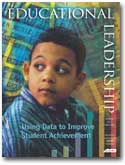Social Class, Poverty, and Education: Policy and Practice
Edited by Bruce J. Biddle, 2001
With the current emphasis on testing, achieving, and funding, the relationship among the factors of social class, poverty, and education has become especially important. This collection of papers from a symposium tackles this complex and difficult topic.
The symposium did not seek easy answers; the contributors grappled with these issues in a sophisticated and intellectually challenging manner, sharing data, offering ideas, and avoiding simplistic conclusions.
A thoughtful paper by Annette Lareau addresses the relationship between social class and child-rearing patterns, asserting that the typical middle-class family is more likely to encourage dialogue and exhibit confident parenting practices, whereas use of corporal punishment to settle disputes is more common in working-class families.
Another fascinating paper by Peter Hall caught our attention because his findings supported many of the conclusions that we reached ourselves after many years in a large heterogeneous high school. An example: Working-class students often have limited opportunities to take higher-level courses that would lead them to higher achievement. Too often, upper-middle-class parents dominate the discourse about what happens in the school.
The book offers not only a plethora of studies and statistics, but also many excellent case studies applying such data. It does not provide a silver bullet to aim at the extraordinarily complex topic of poverty, but it offers insights for educators who are looking for real solutions to real problems.
Published by Routledge Falmer; www.routledgefalmer.com. 272 pages. Price: $70 hardcover.
—Reviewed by James K. Uphoff and Harriet L. Uphoff, Dayton, Ohio
Zero Tolerance: Resisting the Drive for Punishment in Our Schools
Edited by William Ayers, Bernardine Dohrn, and Rick Ayers, 2001
Zero tolerance policies have now become commonplace practically everywhere. In this book, Ayers, Dohrn, and Ayers offer selections from authors who explore the dangers of zero tolerance policies and unequivocally demonstrate that “get tough” policies do not work. The editors invite students, teachers, school-board members and community activists, juvenile court attorneys, and legislators to examine the stories of the impact of zero tolerance policies as told from the front lines.
In part one (Narratives), the authors present the voices of the practitioners in the classroom and community. Giving a face to perpetrators, these voices remind us that children need a chance to grow beyond their transgressions.
In part two (Social Context), the authors present civil rights arguments against zero tolerance. The fundamental right to an education, the civil rights of equal protection and social justice, the due process right of fair procedures, and the first amendment right of free speech are trampled by zero tolerance codes and practices.
In part three (Education and Activism), the authors argue that zero tolerance is based on a narrow, authoritarian view of children and youth that promotes exclusion and intolerance. We must remember, they say, that a child is a child and that teenagers are negotiating a particular stage of human development.
The Reverend Jesse L. Jackson, in the foreword, asserts thatAs adults, we must first be persuaded that all life is precious and that all children have the potential to make a contribution to our society.
Published by The New Press; www.thenewpress.com. 240 pages. Price: $17.95 paperback.
—Reviewed by Laura M. Frey, East Carolina University, Greenville, North Carolina
Oversold and Underused: Computers in Classrooms
Larry Cuban, 2001
People in the United States seem to have an unshakable faith in the capacity of technology to improve life by providing solutions to contemporary physical and social ills. In schools, the assumption is that access to computers in the classroom will solve many of the problems that plague education.
Larry Cuban challenges this belief by critically examining computer use in several Silicon Valley schools. His historical overview, coupled with statistical data and direct classroom observations, bolsters the argument that computers have not improved teaching and learning. In fact, Cuban argues that fewer than 10 percent of teachers are serious computer users, and most teachers who do use technology in the classroom do so sporadically and unimaginatively.
Of particular interest to teachers are the anticipated and unanticipated outcomes derived from teachers' and students' use of new technologies. For example, Cuban finds no evidence that students increase their academic achievement as a result of using information technologies. He observes that the majority of teachers employ technology to sustain existing patterns of teaching rather than to innovate.
Cuban provides an insightful viewpoint of the use of technologies and the beliefs of parents, executives, public officials, and educators that fuel this major investment in schools and computers. If you are interested in the social, educational, and political implications of technology use, Oversold and Underused is a must for your personal library.
Published by Harvard University Press; www.hup.harvard.edu. 256 pages. Price: $27.95 hardcover.
—Reviewed by Michael H. Romanowski, Ohio Northern University, Ada, Ohio

